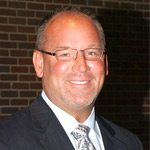20 Years Really Doesn’t Bring That Much Change—Does It?
John Vrba
12/1/2014
Flashback! It’s April 1995 and I am writing an article for a large long term care (LTC) publication titled the “Grassroots Training of a Young Administrator.” In this article I would be sharing what I felt were critical attributes to becoming a successful nursing home administrator after completing a year-long administrator-in-training course by a leading company in LTC. Yep. Back then we still called them nursing homes.

Flash to today. Today I sit here typing this letter as an independent owner of a post-acute/skilled nursing facility.
One thing I can tell ya: Live for today, as tomorrow is promised to no one, whether in your personal or professional lives. So, we all know we are in a new age of health care, but the foundation for operating a quality post-acute/skilled nursing facility (SNF) really hasn’t changed, has it?
What Builds A Strong Foundation
Back in 1995 I wrote that textbooks provide you an education, but solid “hands-on” training is what gets you out of the shallow end of the pool and into the deep end and jumping off the high diving board!
I also wrote that the need for cooperation and communication across departments stood out as paramount. These days, as back then, any reference to a “team approach” in the SNF-post-acute sector tends to sound like a cliché, but teamwork is exactly what it was all about in 1995, and the same stands true today almost two decades later.
If you know you have that within your facilities walls, good for you. If you are not quite sure or think you have it somewhat, try harder—do not accept less. If you know you don’t have strong teamwork, it may be time to change some players on the field. Everyone needs to be focused on one thing and one thing only—quality care in a compassionate environment.
Back in 1995 I wrote that my belief was that more administrators need to get out from behind their desks and interact (boy, that word sure sounds familiar) and listen to their residents, patients, family members, and staff. It’s ironic, but that is our mission statement today: “We will take care of the residents, patients, families, and staff...and the rest will take care of itself.”
Back in 1995 I wrote about how much I learned about positive reinforcement and how vital it is to the staff member who often ends up doing the most distasteful and challenging work, yet tends to receive the fewest rewards or appreciation. Teach others to take time to walk in another person’s shoes before taking the easy way out and judging them.
Remember To Be Human
So yes, health care has changed exponentially! But the foundation for the current leaders and future leaders of health care in 2015 and beyond hasn’t changed—and I venture it never may. The individual touch, the lending of an ear, the dropping to a knee to speak with someone in a wheelchair, the handwritten thank you note (okay, or email/text) is better than nothing, the note under the windshield wiper saying, “Thank you—what you did today really made a difference.” The golden rule is: “Treat others as you would like to be treated.” So easy to say but often not so easy to do.
I am truly afraid that this ever-changing world of health care is becoming too much about technology and metrics and less about the human touch. All the metrics, all the technology, all the programs—they all contribute to successful outcomes, and they definitely enhance our care delivery system—but the true outcome will always be quality care and compassion. What sets the top echelon apart is the human touch.
Health care is one rewarding calling, and I thank each of you for dedicating your career to serving others!
John Vrba is chief executive officer of Burgess Square Healthcare and Rehab Centre, Westmont, Ill. He is also president of the Illinois Health Care Association.